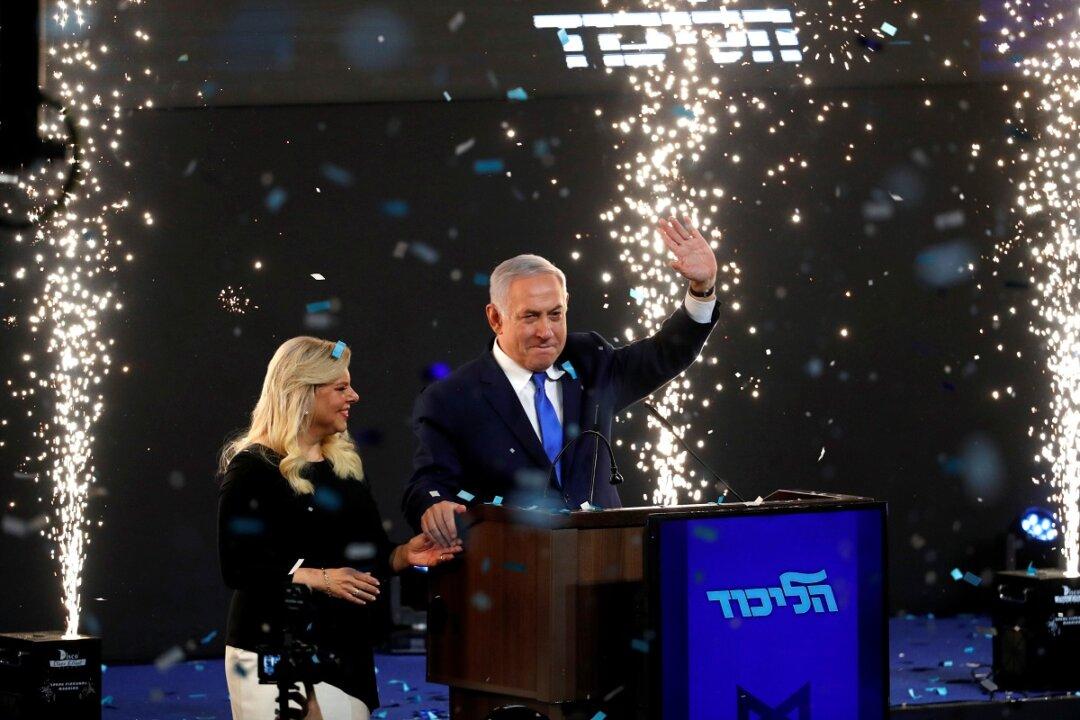JERUSALEM—Israeli Prime Minister Benjamin Netanyahu secured a clear path to re-election on Wednesday, April 10, with parties on the right set to hand him a parliamentary majority, despite a close contest against his main centrist challenger, a vote tally showed.
With more than 97 percent of votes counted, Netanyahu’s conservative Likud party looked likely to muster enough support to control 65 of the Knesset’s 120 seats and be named to head the next coalition government. It would be his record fifth term as premier.





